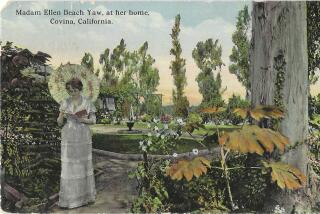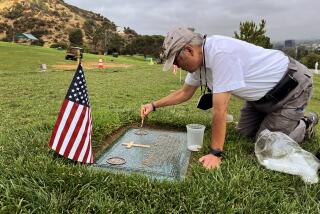Shakespeare on love
Veteran British actress Susannah York brings many of the Bard’s best-loved female characters to life in her one-woman show, “The Loves of Shakespeare’s Women,” which visits Cal State Los Angeles’ Luckman Fine Arts Complex from Friday through next Sunday. The smoky-voiced York, 64, portrays such heroines and even antiheroines as Beatrice, Gertrude, Juliet and the manipulative Lady Macbeth.
She began her film career as a teenager opposite Alec Guinness and John Mills in 1960’s “Tunes of Glory” and starred in two Oscar-winning films: 1963’s “Tom Jones” and 1966’s “A Man for All Seasons.”
Her turn as an ill-fated Jean Harlow wannabe in the 1969 classic “They Shoot Horses, Don’t They?” earned her a best supporting actress nomination, and she also received best actress honors at the Cannes Film Festival for Robert Altman’s 1972 psychological thriller, “Images.” York is also a well-respected author of children’s books.
She stopped to chat recently about “Loves of Shakespeare’s Women,” which she has performed at the Edinburgh Festival in Scotland and various locations in England and the U.S.
What was the genesis of “The Loves of Shakespeare’s Women”?
It actually came about three or four years ago when they were talking about dropping Shakespeare from the state school curriculum in England.
*
You’re kidding.
I’m not! They were talking about dropping him to make way for more “useful” subjects, like technology and all of that. So that is really what galvanized me, I guess. And I knew that [John] Gielgud had done one called “The Ages of Man,” which I never saw. I thought I might do an “Ages of Woman” because I wanted to do a whole span from young to old [Shakespearean women], with every kind of background as well. But then I needed a kind of overarching theme. I guess you could say the “Ages of Woman” was my coat hanger, but I needed something to thread them all on a single thread.
I began to realize that the [scenes] I was choosing all dealt with love of some kind or something not necessarily romantic love but also family love or love for abstract ideals like mercy or truth or power and love that goes wrong as well as love that goes right. I suddenly realized that was the kind of unifying thread.
*
Do you also bring your own life and experiences into the show?
Yes, it is definitely me and Will or Will and me, if you like. I just talk about my first acquaintance and knowledge of him and how he kind of fell out of my life and how he came back in.
*
How did he fall out of your life?
Well, after school and the Royal Academy of Dramatic Arts, I became known as a film actress. I actually still did theater, but I didn’t do much classical theater at all.
*
After being away from Shakespeare for four decades, was it difficult for you to get back into his rhythms and language?
Well, in the end, everything you do, everything I have done in the way of acting, has been a kind of an instinctual approach. Obviously I -- over the years -- have learned my craft quite a bit, and I suppose without even knowing it you are developing technical resources and things you never used to have. I must have learned quite a bit with that, but if you have a kind of innate sense of rhythm and you love language and have been well taught things, Shakespeare is such a master that he almost kind of embeds himself into you. He just kind of finds his way in and seems to find a way out through your mouth.
*
Have younger audiences related to the show?
I thought kids would be a bit coming along kicking and screaming, but when they come they really do seem to enjoy it. A little girl the other day, an 11-year-old girl, she came and she just loved it. And last night there were a lot of students. That’s very pleasing. I wanted it to be for people who never grew up with Shakespeare or felt he was too heavy or it was too late to get him or they were badly taught Shakespeare. It’s a real joy when they come backstage.
*
So did they drop Shakespeare from the schools?
A lot of people reacted and did different things about it like I did. They have lessened Shakespeare, but they didn’t do away with it; they couldn’t do away with it. Language is the most important thing, really, we have -- in the beginning was the word.
*
-- Susan King
More to Read
Only good movies
Get the Indie Focus newsletter, Mark Olsen's weekly guide to the world of cinema.
You may occasionally receive promotional content from the Los Angeles Times.











